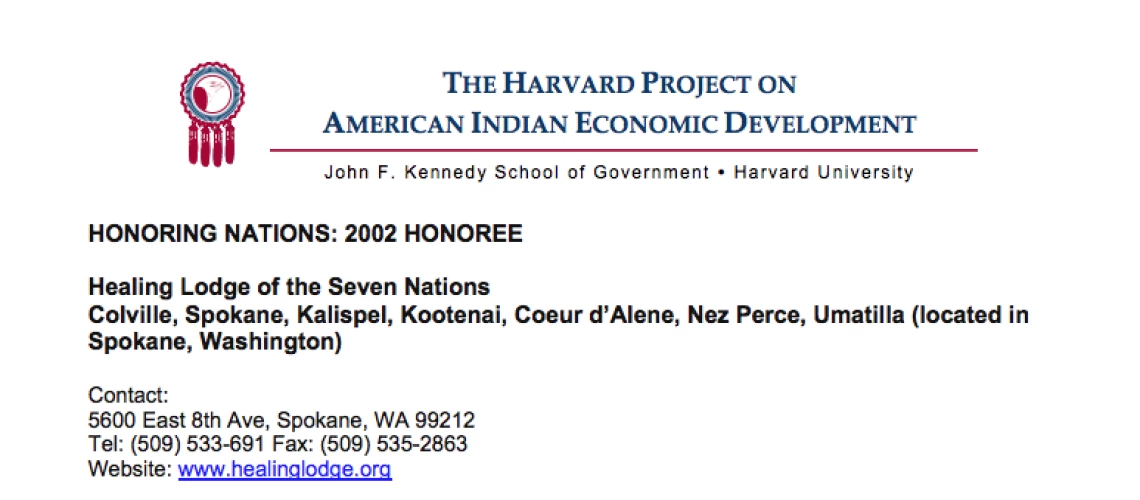Owned by a consortium of seven tribes, the Healing Lodge is a treatment center that helps Native American youth and their families heal from the trauma of alcohol and drug abuse. With a focus on blending culture and spirituality with mental health/chemical dependency treatment, services include in-patient chemical dependency programs, mental health counseling, family counseling, a juvenile justice improvement project, recreation, education, and cultural activities. Since its creation in 1989, the Healing Lodge has served over 1,500 youth from more than 150 tribes, giving them fresh opportunities to better themselves and their communities.
Additional Information
"The Healing Lodge of the Seven Nations." Honoring Nations: 2002 Honoree. Harvard Project on American Indian Economic Development, John F. Kennedy School of Government, Harvard University. Cambridge, Massachusetts. 2003. Report.


